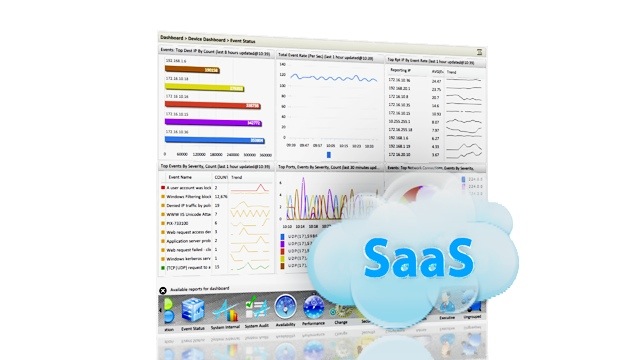A viable solution to business problems can sometimes become a founding stone for another challenge. While SaaS CRM provides a variety of benefits to small businesses, its integration is enveloped by several dilemmas. Because the CRM will have thousands or tens of thousands of customer records in its database, adversaries see it as a gold mine to extract personal data and financial histories.
Usually, SaaS CRM data is vulnerable because of the following reasons.
- External Sharing: While the data is safe inside the CRM, it becomes exposed when it’s shared to external locations, such as to cloud-based storage and employee emails. Proper risk management should be provided after the data leaves the secure CRM environment.
- CRM Vendor Vulnerability: Sometimes, the CRM vendor doesn’t adopt best cloud computing security practices. Ask vendors how they protect your data because you want to know the nitty-gritty of data protection when it’s transferred off-site.
- Inappropriate User Permissions: How many employees have admin-level control? For most companies, far too many staffers have the admin permission even though it isn’t needed for their duties. It’s difficult to control the system and implement proper security when too many individuals are empowered to make changes.
CRM is valuable to small businesses, but only if security vulnerabilities are addressed.
On that account, here are some measures you can take to overcome CRM vulnerabilities.
- Be Proactive About CRM Security
Expect your CRM will be targeted and think about your response. Hackers undertaking reconnaissance are behind the attacks, and they end up leaving marks that can be detected. Real-time visibility into CRM-related activities can expose their efforts. The complex mechanism can also be overseen by a trusted third-party vendor if your business lacks expertise in this area.
Also, Secure Data Recovery, a data recovery servicein Toronto and other vendors that provide similar services in the US and Canada, can step in to execute database data recovery, RAID systems recovery and other types of recovery. For standard cases, such companies provide free diagnostics and then suggest an appropriate way forward. The evaluation report includes turnaround time and price quote so that companies can leverage options that don’t take a toll on their annual expenses.
- Create Functional User Roles
Functional user profiles, based on security-based identification of users, should be applied to all levels of management or even entire departments. Look at it this way: security permissions for the support team will be different than the security permissions for C-level executives. Making functional group profiles will ease the process of removing and adding users from and to the CRM.
Give the ability to permanently delete data to highly trusted and vetted individuals. Many businesses only allow contacts and accounts to be deactivated, but never permanently deleted. Even this action is assigned to designated users. Deactivation removes the contact information from the view.
- Data Encryption Is Highly Important
Data encryption isn’t a new term, but adopting this technique when the data is hosted on the cloud has potential to increase security by manifolds. When information is entered in the CRM, it is encrypted by secret keys before it is transferred and stored on the cloud. The keys are basically “digital codes”.
Keys are also responsible for decrypting data. Adversaries who attempt to get through company protocols may just receive gibberish characters. The owner of the keys should destroy and regenerate them more often.
With these measures, you’ll be able to march towards CRM success.







